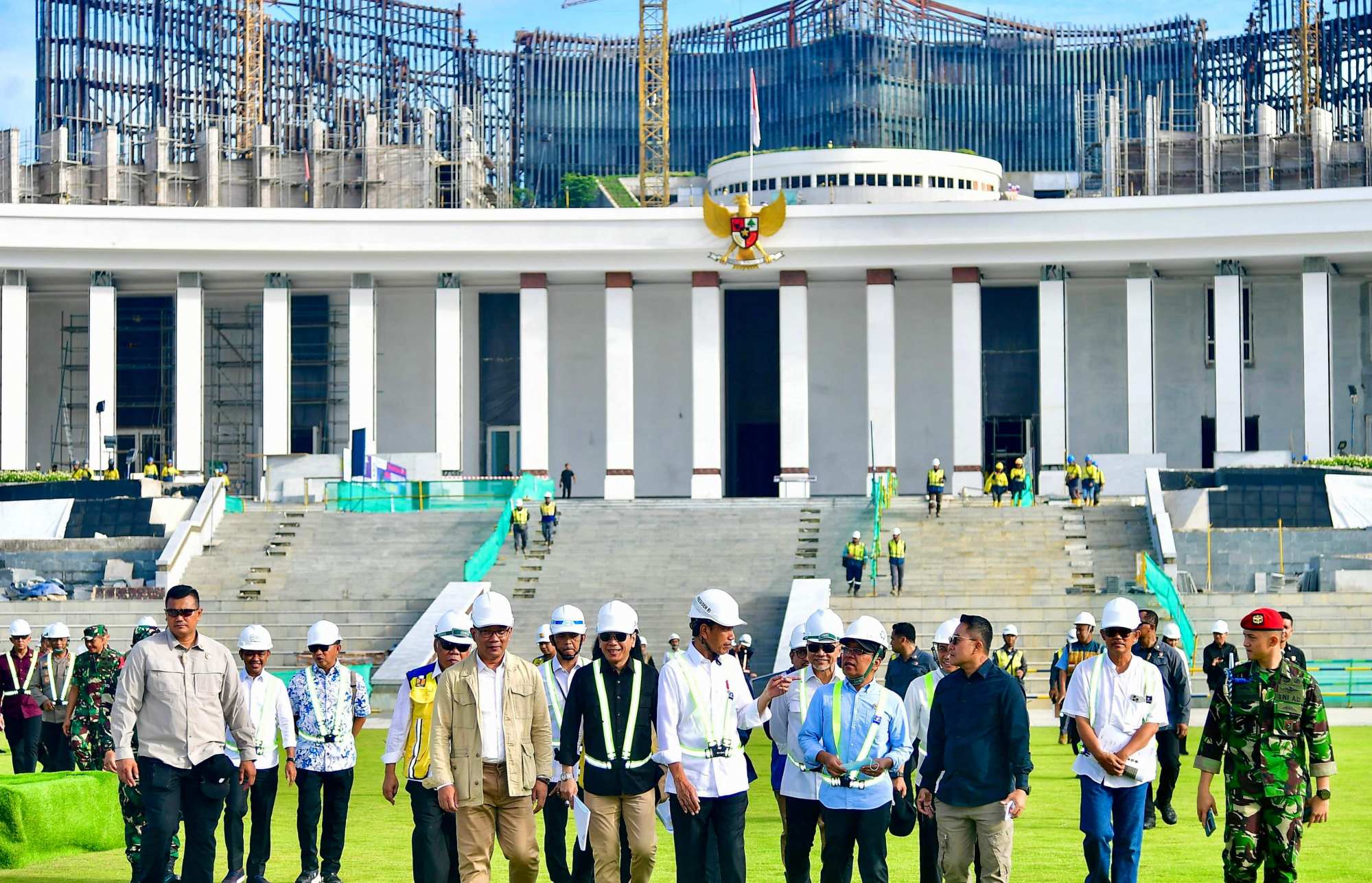Indonesia’s President Joko “Jokowi” Widodo said on Wednesday he plans to start working from the new capital city next month amid concerns over the future of the project following resignations of senior executives overseeing the development.
Jokowi said progress of a number of infrastructure development under the first phase of the US$32 billion capital city, called Nusantara, on Borneo island, has reached around 80 per cent.
“God willing, in July I will start working from the new capital city,” Jokowi said in an Instagram post, adding that preparations to celebrate Indonesia’s 79th Independence Day in the new capital in August are well under way.
“I am very optimistic about the office. We are still waiting for one more thing, the water, in July,” Widodo said in front of the construction site of the new presidential palace.
Widodo has been in Nusantara since Tuesday, a day after the surprise resignations of the head of the Nusantara Capital Authority, Bambang Susantono, along with his deputy, Dhony Rahajoe, for unexplained reasons. Widodo said the resignations were “personal” and were unlikely to hamper future foreign investment in the project.

During his visit, Widodo is inaugurating several construction projects in Nusantara, including a water reservoir. He is also attending groundbreaking ceremonies for schools and universities.
Widodo said Nusantara’s airport is scheduled to be completed by early August.
Construction of the new city began in mid-2022 after Widodo announced that Jakarta would no longer have capital status. The metropolis suffers from pollution and congestion, is prone to earthquakes and is rapidly sinking.
The new capital is to be about twice the size of New York City. Officials say it will be a futuristic green city centred around forests and parks that utilises renewable energy sources and smart waste management.
But the project has been plagued by criticism from environmentalists and Indigenous communities, who say it degrades the environment, further shrinks the habitat of endangered animals such as orangutans and displaces Indigenous people who rely on the land for their livelihoods.

